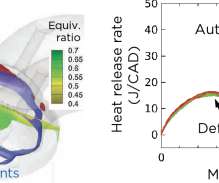Gulf Oil adds LNG-powered trucks to its transportation fleet
Green Car Congress
AUGUST 27, 2012
Gulf Oil LP, a national branded supplier of motor fuels throughout the United States and its territories, has deployed 34 transport trucks that run on liquefied natural gas (LNG). In addition, Gulf will soon be supplying and distributing LNG to customers in the transportation sector and other interested bulk users.












Let's personalize your content